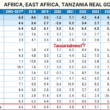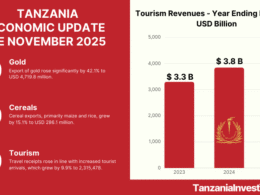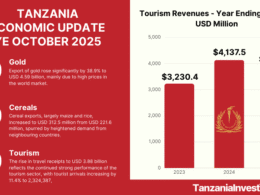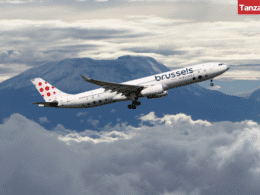According to a recent report in the Citizen, in order to counteract the effects of the global recession on the Tanzania travel and tourism industry, the country can capitalize on the low pricing of the hospitality services.
In addition, the Citizen also reported Eva Trujillo-Herrera, a World Economic Forum (WEF) expert, as having said that the reduced pricing of the country’s first-class hotels and other services could prove to be an advantage both in the region and internationally in attracting tourists to Tanzania.
Based on the 2008 WEF World Travel & Tourism Competitiveness Report, Tanzania was ranked 35th out of 133 countries that were surveyed regarding the pricing of their hotels accommodation category.
Tanzania received an overall ranking of 98 and currently boasts the second most competitive tourism market in the East African Community (EAC).
Ms. Trujillo-Herrera went on to say in a recent interview with BusinessWeek that Tanzania was in a good position to attract travelers as a result of the countries low prices and affordable first-class hotels.
In order to take advantage of this position, however, Ms. Trujillo-Herrera indicated that the country would need to increase its marketing efforts in emerging markets such as China and the Middle East and would also need to begin addressing its high ticket taxes and airport charges.
Official numbers indicate that the country receives 800,000 annual tourists, however, the World Travel and Tourism Council has released numbers which indicate that the country actually hosted 960,000 last year, bringing in a total of TZS 2 billion.
“Overall, Tanzania needs to improve its general policies and regulations affecting the industry,” said Ms. Trujillo-Herrera, “Looking into the details, areas like property rights (ranked 100th), cost to start a business (number 102), and visa requirements to enter the country (80th) become key to further develop the industry.”
Ms. Trujillo-Herrera went on to say that the overall quality of the country’s air transportation, international air transport network, roads and ports as well as the availability of hotels rooms and the digital networks required immediate improvements in order to improve its competitiveness.
“Because many of these critical areas for the tourism industry are crosscutting with other parts of the economy the Government should prioritize their improvement to become more competitive and be able to face difficult times like the current crisis,” she said
The Citizen also reported an economist, Felix Mlaki, as saying that because tourism projections had fallen by 20 percent, extra efforts would be required in order to meet the countries development obligations in the upcoming year.
In addition, Mr. Mlaki went on to say that public private partnership investments offered the excellent prospects for accelerated investment both in the country’s infrastructure as well as in other development projects.










